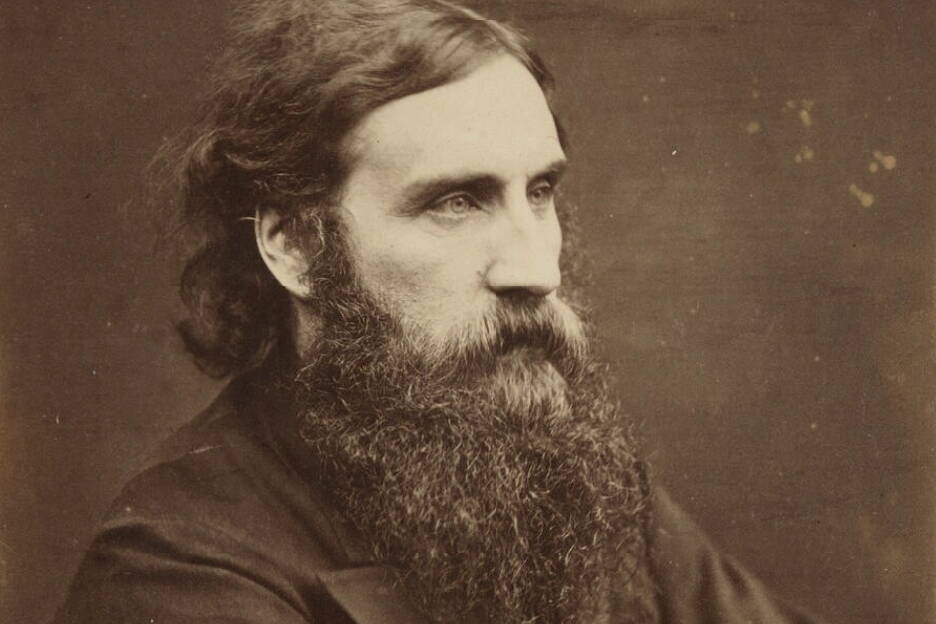“I know nothing that gives me such a feeling of spiritual healing, of being washed, as to read George MacDonald.” — C.S. Lewis.
I am in complete agreement with C.S. Lewis. I am particularly grateful to MacDonald for how he beautifully and compellingly articulates his belief regarding God’s care and love for animals. A belief that I wholeheartedly share.
When I was a child my mother read children’s books to me by George MacDonald including “The Princess and the Goblin,” “The Princess and Curdie,” and “The Golden Key.” When I read these books to our children decades later, they delighted me as much as when I was a child.
George MacDonald was born in Scotland in 1824. He received a master’s degree in chemistry and physics in 1845, but soon thereafter decided to devote his life to serving God. He studied theology in London and became a Congregational minister at the age of 26. After serving in a parish for three years, he was effectively dismissed by the church elders for his “heretical” views. Primarily their issue with MacDonald was that he believed that God’s unconditional love, and the potential for salvation, extended to all — even unbelievers. He held that God would eventually reconcile all creation to himself — including animals (more on that below).
After losing his parish, MacDonald embarked on a prolific writing career that encompassed many genres, including novels, books of sermons, children books, and fantasy. His works had enormous influence not only on C.S. Lewis, but on many other writers, including J.R.R. Tolkien, Lewis Carroll, and Madeline L’Engle. MacDonald also helped, and continues to help, many seekers to accept Christianity, including C.S. Lewis who was an atheist until age 32. Lewis wrote about the Scotsman, “I hardly know any other writer who seems to be closer, or more continually close, to the Spirit of Christ himself.”
For an introduction to MacDonald’s thought I would suggest “George MacDonald: An Anthology 365 Readings,” complied by C.S. Lewis, and “Hope for the Gospel,” which provides an overview of his love-based, Christocentric theology.
The underlying theme of George MacDonald’s works across genres is the inexorability of love. He continually affirms that God eternally loves and cares for all creation — not only humans. Nowhere is his belief spelled out with more specificity than in the last chapter of “Hope for the Gospel.” He make a well-reasoned and compelling case that if one believes in a loving Creator, and that humans are destined for life beyond the grave, why would other animals not also share this destiny?
MacDonald refuses to believe that a loving God would bring into being creatures only to have them live brief and often painful lives before death and annihilation. I have always intuitively believed this, as I suspect do many who believe in God and have also loved, and been loved by, a dog or cat or any animal. MacDonald contends that even wild animals and animals that some of us may be unlikely to love, such as insects or reptiles are also loved and cared for by God and will not be forgotten when their earthly life concludes. Do we so limit God’s goodness, love, and divinity to think that this is impossible?
Jesus said that no sparrow falls outside of God’s care (Mt 10:30). If we believe this, and that our Creator loves all the creation, there follows significant implications for how we treat the creatures that share our Earth — including how we eat, how we test medical and other products, and how we treat the created world in general.
George MacDonald concludes “Hope for the Gospel” with words that carry great promise for all of us who have mourned the death of a beloved pet or who lament the cruelty inflicted on the animals who share our world:
“To those who expect a world to come, I say then, ‘Let us take heed how we carry ourselves to the creation which is to occupy with us the world to come.’ To those whose hearts are sore for that creation, I say, ‘The Lord is mindful of his own, and will save both man and beast.’”
Amen.
• Tim Spengler attends Holy Trinity Episcopal Church in Juneau. He has a spiritual direction practice at spenglerspiritualdirection.com and is a hospice chaplain. “Living & Growing” is a weekly column written by different authors and submitted by local clergy and spiritual leaders. It appears every Saturday on the Juneau Empire’s Faith page.

